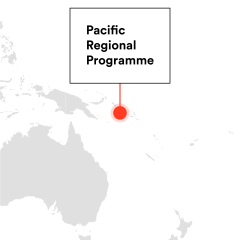Analyse the national policy, legal and institutional environment

Analyse the national policy, legal and institutional environment
Case Studies

In 2019, Spotlight Initiative programmes conducted a contextual analysis across the Pacific region to better understand the policy and legal context that contributed to high rates of VAWG. This analysis showed that domestic violence legal frameworks exist in the form of Family Protection Acts in countries such as Samoa and Fiji. However, sexual and reproductive coercion was not criminalised as a form of domestic violence. In some countries, there were also discrepancies between different laws and policies, due in part to a lack of coordination between government ministries when developing new policies and legislation. In other contexts, legal frameworks to protect women and girls’ rights existed, but were not consistently implemented.
For example, in Papua New Guinea, the analysis conducted showed that the government lacked the knowledge, political will and buy-in to implement laws protecting women from domestic and intimate partner violence. The lack of coordination between government officials and ministries exacerbated the challenges of implementing these laws. Following this analysis, the Spotlight Initiative programme in Papua New Guinea committed to providing technical support to the government to ensure that intimate partner violence is integrated into existing legislation. In addition, they advocated and provided support for the inclusion of affected populations, such as women living with HIV and women with disabilities, into the legal drafting process to ensure their perspectives were heard.
In Vanuatu, analysis conducted by Spotlight Initiative found that, despite being the first country to pass domestic violence legislation in 2008, many domestic violence cases were still being addressed through customary courts. These courts are not aligned with international human rights standards and often prioritise family reconciliation over survivor-centred justice. In response to this, the Spotlight Initiative programme in Vanuatu worked with Civil Society Organisations to support the government to develop a Survivor-Victim's Charter to provide survivors with guidance on how to access the criminal justice system and access support services across the country. They also supported the government to review and integrate international conventions focused on ending VAWG and promoting women’s rights into national laws to ensure a harmonised response to intimate partner violence.







